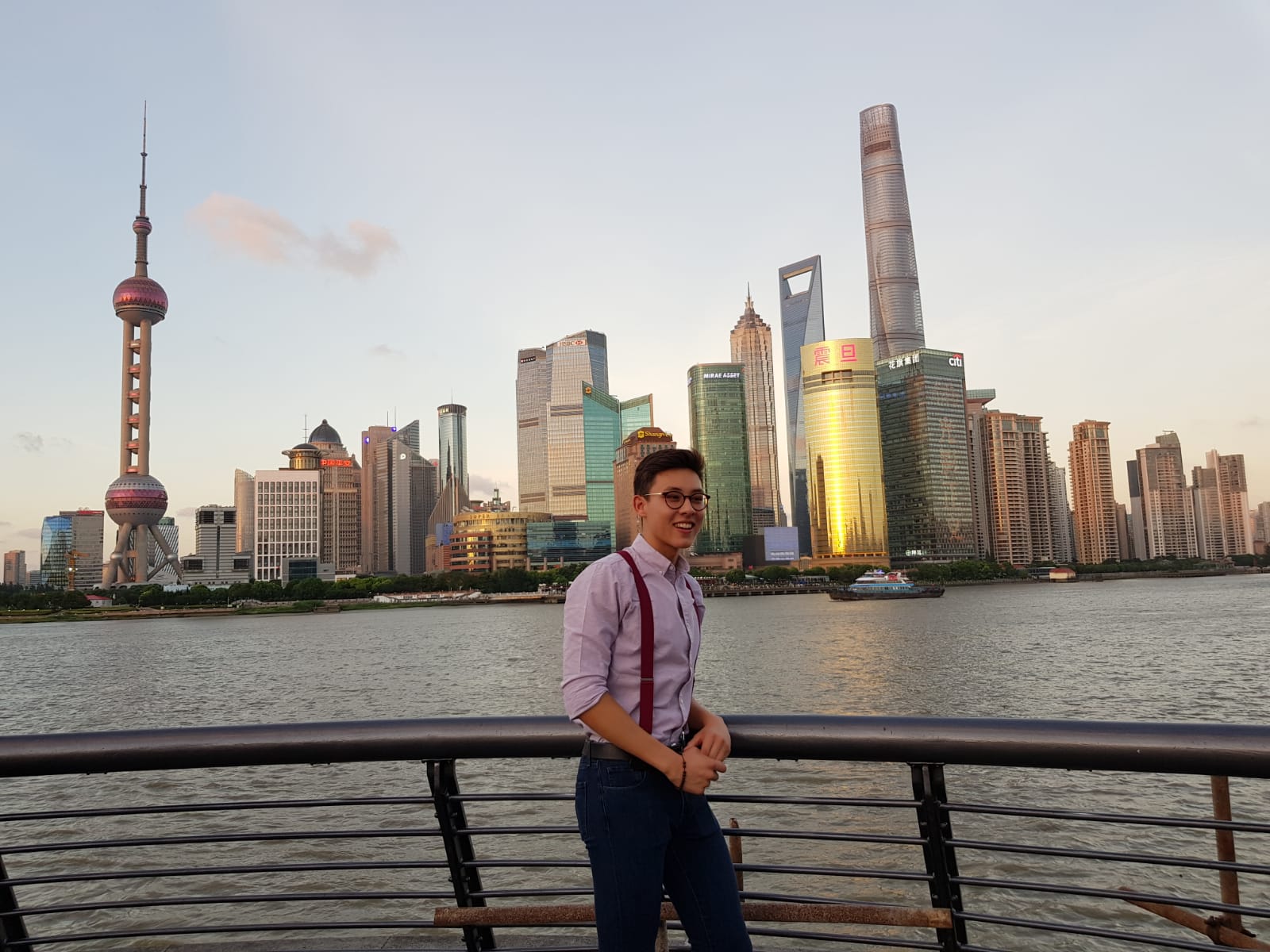China has always been a big part of my life. For starters, I was born and raised there. My 外公外婆 (grandparents) make it a point to remind me whenever we speak that I am Shanghainese and that it will always be important to my identity. My father is German and was an expatriate at the time, one of the first to make the trip to China to set up and manage a joint-venture almost 30 years ago. My mother is Chinese and grew up in a traditional Shanghainese household, though quickly found a career in one of the international firms that would go on to shape the business environment there.
Growing up, I lived between my German and Chinese heritage in the mega-city that is Shanghai. I went to an international school and spent most of my time with a multicultural community of friends from all over the world. I was exposed to their different perspectives and experiences early on, and so Shanghai quickly became a melting pot of people and nationalities to me. I learned how large the expatriate community was and how vital the Chinese market was for many of the multinational firms located in my hometown as I got to know more students from other international schools through Model UN conferences and high-level swimming competitions. At the same time, I would catch glimpses of China’s cultural traditions and extensive history through my Chinese family. My Chinese side helped bridge the distance I would have otherwise felt as an international student, teaching me about important festivities, culture and stories. What has stuck with me most from these lessons until now is unquestionably the ways of making delicious food, and I certainly look forward to experiencing the cuisine Beijing and other parts of China have to offer as well as the customs and traditions that come with it.

And though it took some years for me to grasp the significance of the enormous economic growth and transformation China was going through, I soon realized that the sheer scale at which the nation was developing and speed with which new technologies were created and made available was singular. This fascinating leap was something I see quite clearly now in retrospect, but at the time it came only in small cues and signs. In my last few years of high school I began volunteering as a teaching assistant at a local Chinese school for the children of migrant workers in the 青浦区 (Qingpu District) of Shanghai. I taught students that were many years younger English and Science, ran fun experiments with them and improved my mandarin at the same time. It was the first time I was confronted with what China’s economic growth meant for the millions of workers and their livelihoods, many who came to these metropolises in search for economic prosperity, bringing their families along with them. Leaving the countryside to support the development of China’s urban centers provided these families with an opportunity not only by giving them the means to escape poverty, but also by providing access to education for their children. It made me conscious of the dynamism and drive in the Chinese workforce needed to make this possible.
My last year in China before departing to Germany for college was spent researching the effectiveness of microfinance loans as a motor for poverty alleviation. I spoke to both lenders and borrowers, interviewing a regional manager at a commercial bank in charge of microfinancing in the district I lived in as well as shop-owners and vendors. I learnt about the uncertainties and risks that entrepreneurs faced, and what banks were doing to try and alleviate concerns associated with them. Although China had seen tremendous economic growth, I realized that I couldn’t just assume this progress influenced everyone equally and at the same time. Recognizing that what I saw as an international student wasn’t always the full picture in China’s story fueled a curiosity in me to further deepen my understanding.

And even when I left to start university in Berlin, my interest in China never really wavered. As a consultant for one of Germany’s leading student consultancies, I worked closely with the Chinese Chamber of Commerce to better understand the needs of Chinese businesses, the importance of bilateral investments and China’s increasingly prominent role in Europe. I represented my organization at China-specific conferences and symposia held for Chinese firms that were settling abroad, and German firms looking to branch out and do business with China. It was here where I first learned about the unique sides of Sino-German cooperation, the differences in modes of governance and business etiquette; but also the unifying aspects of working towards a common commercial goal. I spent the final year of my undergraduate degree as a Fulbright scholar at the University of California, Berkeley, where I studied Sino-American relations as the pandemic was beginning. I learnt about the geo-political complexities of this relationship, the risk of disruptions to global supply chains and the renewed importance of international cooperation. Conducting research on these topics was fascinating, and it solidified my motivation to be a part of building that bridge between China and the world at the Yenching Academy.
It was because of all of these experiences that I began thoroughly recognizing the immense role China was already playing on the international stage. It is also why I continue to be captivated by this country and believe in the importance of understanding the different societal, economic and political facets China has to offer. That being said, I could not be more excited for my journey to take me back to China as a Yenching Scholar, researching many of the aforementioned topics and adding this new chapter to my ever-changing China Story. I hope it is one of many still to come.